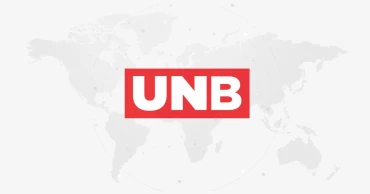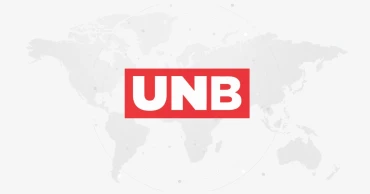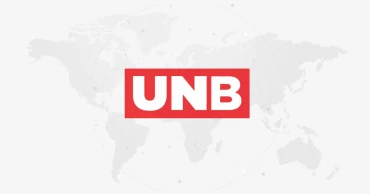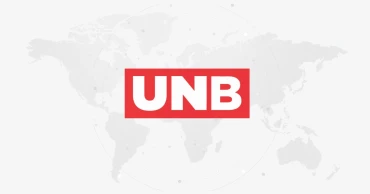LCs
Yarn importers with prior LCs to be allowed to use land ports: NBR
Importers who opened or amended letters of credit (LCs) for yarn on or before April 13 will be allowed to bring in cotton through land ports, the National Board of Revenue (NBR) said on Thursday.
The clarification came amid confusion following the recent government ban on yarn imports through land ports.
On April 13, the NBR suspended the import of yarn including cotton yarn through major land ports such as Benapole, Bhomra, Sonamasjid, Banglabandha, and Burimari.
The move followed a request from the Bangladesh Textile Mills Association (BTMA) and recommendations from the Commerce Ministry.
The decision aims to support local yarn producers and curb under-invoicing of imported yarn.
The ban applies to all importers including 100% export-oriented industries and took effect immediately.
10 months ago
US Ambassador Haas discusses ways to expand exports, LCs issues with agribusiness stakeholders
US Ambassador to Bangladesh Peter Haas and the Agricultural Attaché of the embassy talked to agribusiness stakeholders during a dinner on Wednesday (October 25, 2023) night about ways to expand exports. During the dinner, the ambassador also noted challenges including securing letters of credit (LCs), US Embassy Spokesperson Stephen Ibelli said today (October 26, 2023).
The US Embassy Agricultural Attaché, other staff members, and the ambassador attended the dinner hosted by W&W Grains, an authorized Cargill Distributor (an American company), to meet with key private sector agribusiness representatives, the spokesperson said while clarifying “inaccurate reporting” regarding the dinner.
Read: US envoy Peter Haas meets editors
In 2022, the United States exported over USD 900 million worth of agricultural products to Bangladesh. Bangladesh’s agribusinesses are valued partners of the United States as the country looks to provide products including soybeans, wheat, cotton and other items that contribute to Bangladesh’s economic growth – from livestock development to the readymade garment sector, said the embassy spokesperson.
Read: US to send pre-election assessment and monitoring team in early Oct: Peter Haas
A diplomatic source said several diplomats from other countries, including the charge d'affaires of the Singapore Embassy, attended the dinner.
Read more: Shared principles and ability to continually ‘form a more perfect union’ are the anchor of US-Bangladesh relations: Peter Haas
2 years ago
Target trade-based capital flight, not genuine consumption through imports: Economists
An upward trend in imports once again amid calls for austerity from the highest levels of Bangladesh government has raised concern among economists as to whether truly effective steps are being taken to check trade-based capital flight, particularly through the practise of over-invoicing by the country’s importers.
The government has been looking to shore up its dwindling reserves of foreign exchange by cutting down imports of non-essential and luxury items, as well as tightening the process for issuing LCs by banks on behalf of importers, during which over-invoicing occurs.
Both Bangladesh Bank and the government took a number of measures to curb import payments, which hit a record high of $82.5 billion in FY22, that ended last June 30. The central bank has asked banks to impose a 100 percent margin on the opening of LCs for non-essential items, meaning that importers have to make a full import payment in advance.
Read: Bangladesh Bank raises dollar exchange rate by Tk 1 to Tk 100
The results were mixed, with only a slight cooling down in imports noticeable in the first quarter of the current fiscal (July to September 2022), clocking $19.3 billion. With exports too slowing somewhat to $10.8 billion in the same period, the country’s trade deficit had already ballooned to $7.5 billion in the first three months of the year - sustaining the pressure on the reserves.
Subsequent data from the Export Promotion Bureau have shown that exports bounced back strongly in the second quarter, breaking records in November and December. But now import data, which from Bangladesh Bank tends to be a month behind the export numbers from EPB, has shown that imports too have kept performing robustly.
After continuing to hover above the $6 billion mark in October, the country’s imports crossed the $7 billion mark once again in November 2022, clocking $7.03 billion, up 14.2 percent from the previous month.
Read: Exporters to get slightly higher rate of Tk 102 for one US dollar
Acknowledging the need for austerity to check superficial spending, economist and former caretaker government advisor Dr. A.B.M Mirza Azizul Islam was keen not to see rising imports as a negative per se, since it also signals strong demand in the economy and the people’s purchasing power. Consumption can be a driver of growth.
"This is a good aspect of increasing imports. It is natural that imports will increase when the economy grows. Imports will increase, investment in the country will increase. The economy will move forward,” he told UNB.
“The problem is our imports had increased abnormally. It came down in various steps. Now there is an increasing trend again. But our reserves are dwindling. In this situation, there will be more pressure on reserves,” he said.
Read: Remittance: Bangladesh Bank tells banks to provide Tk 107 per dollar
So the government has to stay on the path of austerity, it should continue for some more time. After getting loans from the IMF, World Bank and ADB, things can be thought of differently, Mirza Aziz said.
Former governor of the central bank, Dr Salehuddin Ahmed, opined much the same, encouraging increased domestic resource mobilisation while following the path of austerity.
He also suggested strongly to verify the LCs against goods arriving via containers to stop trade-based money laundering, the real menace that needs to be targeted.
Read More: Bangladesh reassures Chinese FM of one-China policy, seeks better trade relations
As the global economy started to normalise in the post-pandemic period, Bangladesh witnessed galloping import demand outshine record exports in the 2021-22 fiscal. The $82.5 billion import figure was itself a record, up 36 percent year-on-year and leading to a record trade deficit as well.
The country’s forex reserves, which peaked at $48.1 billion in August 2021, will soon have halved since then.
At the end of the last trading week on Thursday (Jan. 5), the reserves stood at $33.6 billion, including encumbered reserves. The unencumbered reserves figure would be $24.5 billion, following the next payment to the Asian Clearing Union, $1.12 billion for the November-December period, due this week.
Read More: UK to strengthen trade, investment, digital economy ties with Bangladesh: Indo-Pacific Minister
3 years ago
LCs under scanner to check money laundering: Tipu Munshi
Commerce minister Tipu Munshi on Sunday said his ministry will soon form a committee to strengthen monitoring and vigilance to check soaring prices of essential commodities.
Bangladesh Bank will also form a crisis management committee to monitor the market and supervise the import of goods, the minister said.
He was talking to reporters after a meeting with the representatives of the chamber and trade bodies at the Secretariat in Dhaka.
Munshi said both committees will monitor the stock, supply and import of some basic commodities so that consumers can buy at an affordable price during upcoming Ramadan.
Also read: Tipu Munshi seeks more US investment
Replying to a query commerce minister said the government will not hold the LCs which quotes the real price of imported items.
The commerce ministry, the central bank and National Board of Revenue (NBR) are working jointly to check money laundering through manipulation of the export income and import costs, Munshi said.
3 years ago
Bangladesh Bank yet to allow Indian rupee in foreign trade
Bangladeshi businesses cannot use Indian rupee for foreign trade as Bangladesh Bank is yet to enlist the currency to settle letters of credit (LCs).
BB spokesperson and executive director Md Serajul Islam told UNB that the central bank is yet enlisted Rupee for foreign trade.
He said that Bangladesh Bank is reviewing currency diversification in foreign trade to reduce sole dependence on the US dollar.
Read:“Use rupee, taka”: India asks exporters to refrain from trading in dollars with Bangladesh
Before allowing any foreign currency for trading, the central bank has maintained an exchange stander, and stability in line with the IMF standard, he said.
Businesses said if trade between Bangladesh and India happen in local currencies, pressure from falling US dollar reserves and associated ongoing forex market instability can be reduced.
They said India is the second largest source of imports of raw materials and other goods for Bangladesh. Industrial raw materials, capital machinery, cotton, yarn, fabrics, and chemicals worth USD 16.19 billion were imported from India in the fiscal year 2021-22.
Read:Bangladesh’s forex reserves now $36.90 billion
At the same time, Bangladesh exported goods worth USD2 billion to the neighbouring country.
On September 15, Bangladesh Bank allowed banks to open accounts in the Chinese currency yuan.
IMF has recognized five countries’ currencies as “high-value”. The Chinese yuan was admitted to IMF’s high-value currency basket in 2016. Since then, the yuan has become stronger than ever as per a currency review by the IMF.
Read Sri Lanka hopes to reach initial agreement with IMF for help
3 years ago
BB tightens belt on forex reserve, bans import credit on luxury items
The central bank has tightened spending on the foreign exchange reserve to judiciously meet the cost of importing essential commodities and fuel.
As part of this move, Bangladesh Bank has imposed restrictions on loans for importing 27 types of goods, reducing import demand which has increased by 44 per cent in recent months.
Read:BB asks banks to keep branches open in Dhaka cattle market areas on July 8,9
From now on, importers will not get bank loans for importing these products. Banks will not be allowed to use forex if the loan LCs was approved earlier.
The central bank directive stated that long-term negative effects of the corona and the recent prolongation of the war of Russia-Ukraine leads to instability in the global economy. To further consolidate the country's currency and debt management, the BB has directed to re-determine the cash margin rate in the case of opening of import bonds.
The directive stated that motorcars (sedans, SUVs, MPVs, etc.), electrical and electronics home appliances, gold and gold ornaments, precious metals and pearls, readymade garments, leather goods, jute goods, cosmetics, furniture and ornaments, fruits and flowers, - Certificate in respect of opening of securities for import of cereals (such as non-food items, processed foods and beverages, such as canned food, chocolate, biscuits, juices, soft drinks, etc.), alcoholic beverages, tobacco, tobacco products and other luxury goods, banks will have to maintain 100 per cent cash margin provision opening import LCs for these goods.
The required margin has to be deposited from the importers’ own source against the opening of import LCs for these products. No margin can be paid in favor of the importer in the concerned bank against the opening of the import loan by opening an existing loan account or by creating a new loan account.
In addition to baby food, essential food products, energy, life-saving medicines and equipment recognized by the Directorate of Health, medical equipment, directly imported capital equipment and raw materials for manufacturing local industries and export oriented industries, agricultural products and other government priority projects, minimum of 75 per cent cash margin should be maintained in case of opening import credit for all products.
Read: BB re-fixes mobile financial service money transaction limit
Dr Salehuddin Ahmed, former governor of BB told UNB that the central government has taken the right decision in discouraging such imports.
“The global economy is going into a volatile situation due to the prolonged Russia-Ukraine war and it is uncertain when the situation would improve,” he said.
So the crunch of forex spending is now important to avert any financial crisis, Salehuddin said.
3 years ago










